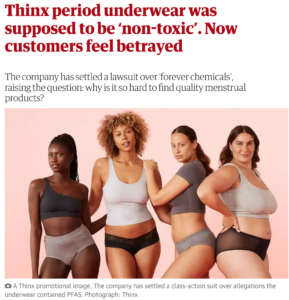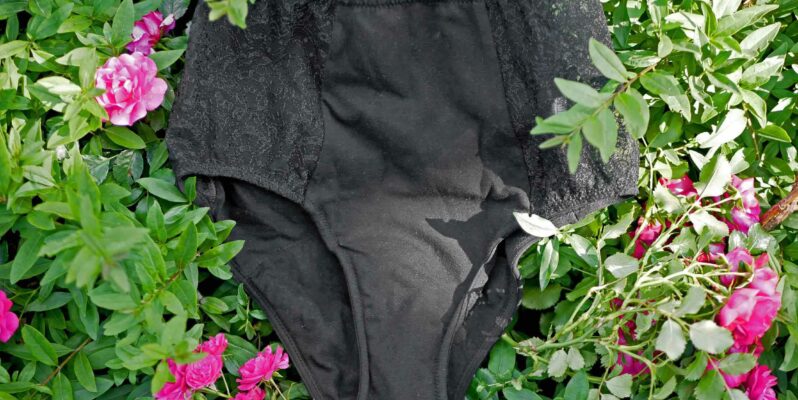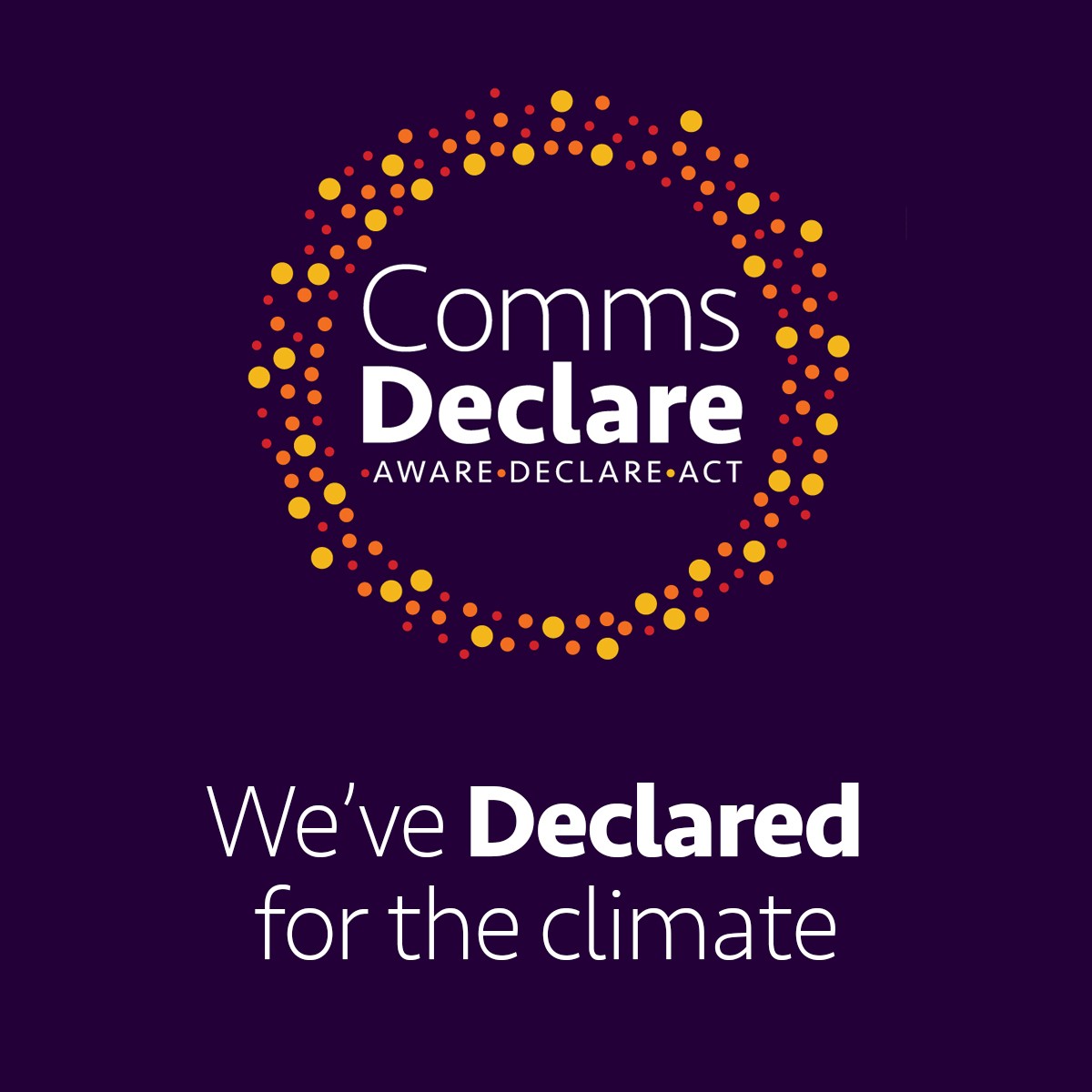Insights from the US$5M period undies greenwash lawsuit settlement
Period undies brand Thinx has announced a US$5m settlement to customers. The case has important lessons for all brands making environmental claims. US-based Thinx period undies are sold in supermarkets in New Zealand as part of the ‘U by Kotex’ range. As the US and UK media covered on 19th January 2023, the brand is offering refunds to customers who make claims before 12th April 2023.
The settlement is in response to a class action lawsuit and revelations the absorbing layer includes ‘forever’ chemicals (PFAs), linked to chronic diseases including cancer, and Agion, a manufacturing pesticide that may also pose a health threat. Like most, if not all, products in the new period undies category, Thinx has traded heavily on its environmental benefits. While Thinx denies wrongdoing, and says it is working with suppliers to make changes, customers feel aggrieved.
“I’m disappointed because I love these products and now I’m scared about the impacts that PFAS and silver nanoparticles might have had on my health that I’m not experiencing yet, like cancer,” Tasha Gjesdahl , a Thinx customer of five years, told the Guardian.
Lessons for marketers communicating sustainability
There are useful lessons for all marketers and brands communicating sustainability and health benefits.
Among the oceans of greenwash out there, this stands out for the following reasons:
1 Period undies have been a rapidly growing category since the first products entered the market internationally in around 2015. The first New Zealand brand, I Am Eva, followed in 2018.
2 The new category’s growth has been largely fuelled by public concerns about both the waste of disposable period products and health impacts of using tampons. The class action directly challenged the health and safety of the period underwear, cutting to the heart of the brand promise.
3 Period undies brands make a range of claims about the eco and health benefits of their period undies but, in my research, are generally silent on WHAT the non-bulky super-absorption layer in the gusset is actually made of. Even brands who are specific about the fabric of the undies overall and of the gusset lining don’t, as far as I can find, specify what gives the absorbency. I have been mildly curious about this in the past but, having been a long-term menstrual cup user, I never looked into it. Clearly some Thinx customers did.
Following the law suit settlement, The Guardian has investigated Australian period undies brands – Bonds and ModiBodi say they don’t use them. As at 31 Jan 2023, Cotton On hadn’t responded.
 So what can other sustainable business brands learn from Thinx?
So what can other sustainable business brands learn from Thinx?
Be transparent
If you are promoting environmental or health benefits it’s vital to be wholly clear about the extent of these. The tendency of some people who buy for health and sustainability reasons to do their own deep-dive research, coupled with the hyper-connected world we now live in, means any dark secrets will be exposed and shared, sooner or later. Aotearoa – NZ owned and operated period undies company AWWA, a fellow B Corp, responded well to the forever chemicals issue, undertaking extra checks with their suppliers and publishing this blog as a result.
Trust is priceless so guard it well
The US$5 million cost to Thinx of settling the case is likely to be dwarfed by the lost sales from the reputational damage. All brands need to manage their reputational risk and taking a precautionary approach is good governance as well as wise marketing.
Customers do not expect brands to be perfect – but they are looking for deep authenticity. If your new product or service has imperfections or limits to its eco-splendour, be candid about them. You’ll be trusted more for being honest. Sharing your journey to further improvements with your audiences will deepen your relationships with customers and advocates.
One player can sabotage a sector
It’s too early to say if the Thinx settlement will damage sales for the sector overall or how many other brands’ products also contain forever chemicals. But we do know that greenwash increases customer cynicism so it seems likely there will be a ripple effect. Other period undies brands may experience sales drops but will almost certainly experience increased queries from customers or potential buyers. They will bear some cost to their business because of Thinx even if their product isn’t similarly problematic.
The lesson here is to set high standards in your sector and demand the same of competitors. If you don’t you might get dragged through the mud. And of course if customers become more reluctant to try new products with improved environmental claims the pace of change we need to a more sustainable economy slows. The Commerce Commission and Advertising Standards Authority in New Zealand both have processes for competitors to make complaints about claims.
Betrayal
When we promote products and services that address environmental or social issues it can feel as if we are being held to account by higher standards than mainstream providers. This is largely true – there isn’t a legal requirement for period products to list ingredients or chemicals so, under the old rules of business, Thinx aren’t necessarily doing anything wrong. But they have failed in their ethical responsibility. When we harness the public’s desire to make better choices, we betray them if we don’t ensure those choices are genuinely informed.
If you’d like a free confidential chat about the issues raised in this article, about greenwash more generally, or about how you or your business make sustainability claims, please call us or email us. We’d love to hear from you.
See some of our track-record in sharing what we know about marketing sustainability and greenwash – or find out about our own B Corporation Certification at GoodSense.













